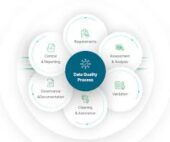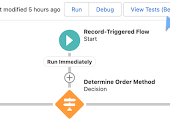Consumer Trust and Responsible AI Implementation
Thank you for reading this post, don't forget to subscribe!Ethical AI Consumer Trust vs Expectations
Research indicates that while consumers have low trust in AI systems, they expect companies to use them responsibly. Around 90% of consumers believe that companies have a duty to contribute positively to society. However, despite guidance on responsible technology use, many consumers remain apprehensive about how companies are deploying technology, particularly AI. ethical ai consumer trust vs expectations
A global survey conducted in March 2021 revealed that citizens lack trust in AI systems but still hold organizations accountable for upholding principles of trustworthy AI. To earn customers’ trust in AI and mitigate brand and legal risks, companies need to adopt ethical AI practices centered around principles such as Transparency, Fairness, Responsibility, Accountability, and Reliability.
Developing an Ethical AI Practice
Over the past few years, industry professionals like have focused on maturing AI ethics practices within companies like Salesforce. This journey toward ethical AI maturity often begins with an ad hoc approach.
Ad Hoc Stage
In the ad hoc stage, individuals within organizations start recognizing unintended consequences of AI and informally advocate for considering bias, fairness, accountability, and transparency. These early advocates spark awareness among colleagues and managers, prompting discussions on the ethical implications of AI. Some advocates eventually transition to full-time roles focused on building ethical AI practices within their companies.

Organized and Repeatable Stage
With executive buy-in, companies progress to the organized and repeatable stage, establishing a culture where responsible AI practices are valued. This stage involves:
- Development of ethical principles and guidelines aligned with the company’s values.
- Formation of dedicated teams comprising diverse expertise and backgrounds.
- Employee education on responsible AI practices, emphasizing everyone’s role in ethical AI implementation.
- Establishment of mechanisms for evaluating AI projects based on ethical considerations.
- Scaling ethical AI practices across the organization while ensuring resource efficiency.
Achieve Ethical AI Consumer Trust vs Expectations
During this stage, companies must move beyond superficial “ethics washing” by actively integrating ethical principles into their operations and fostering a culture of responsibility. Additionally, the independence and empowerment of individuals in responsible AI roles are crucial for maintaining integrity and honesty in ethical AI practices.
Final Insight Thoughts
As companies progress through the maturity model for ethical AI practices, they strengthen consumer trust and mitigate risks associated with AI deployment. By prioritizing transparency, fairness, and accountability, organizations can navigate the ethical complexities of AI implementation and contribute positively to society.
ethical ai consumer trust vs expectations













